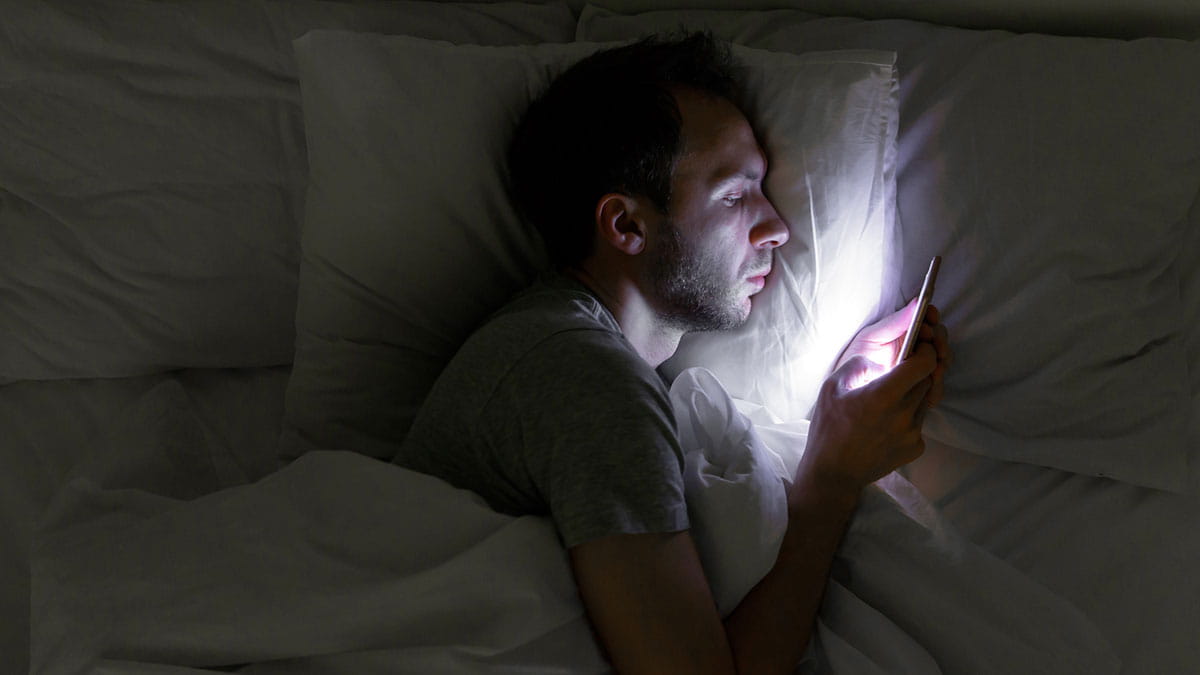Blog article
What is a digital detox and should you try it?

A survey conducted by R U OK found that Australians spent an average of 46 hours a week looking at a screen, but just six hours with family and friends.1
With too much screen time being linked to unhealthy outcomes, such as increased weight, mental health disorders, and poor social wellbeing, particularly in children, it could be time for you and your loves ones to try a digital detox.2
What is a digital detox?
A digital detox refers to a period of time during which you consciously disconnect from electronic devices such as phones, TVs, tablets, computers, and social media platforms. It’s an intentional break aimed at reducing stress, improving focus, and reconnecting with the physical world.
During a digital detox, you can choose to either limit or completely abstain from using technology. The goal is to create a space for mental rejuvenation and to establish healthier habits around technology use.
Should you try it?
The decision to embark on a digital detox largely depends on your personal circumstances and lifestyle. To help you decide, we’ve listed some of the benefits of trying a digital detox:
Reduced stress and anxiety: Constant exposure to digital devices and information overload can contribute to feelings of stress and anxiety.3 Taking a break allows your mind to unwind and reset, potentially leading to a calmer state.
Improved focus and productivity: Distractions from notifications and endless scrolling can disrupt concentration and productivity.4 By disconnecting, you can reclaim your focus and accomplish tasks more efficiently.
Enhanced relationships: Excessive screen time can detract from face-to-face interactions and quality time with loved ones.5 Disconnecting from devices allows you to fully engage in meaningful conversations and strengthen relationships.
Better sleep: The blue light emitted by screens can interfere with the production of melatonin, a hormone that regulates sleep.6 Limiting screen time before bed can improve sleep quality and overall wellbeing.
Increased mindfulness: A digital detox encourages mindfulness by promoting awareness of how and why you use technology. It encourages you to be present in the moment and engage more deeply with your surroundings.
Physical health benefits: Extended periods of screen time can contribute to sedentary behaviour and posture-related issues. Disconnecting allows you to incorporate more physical activity into your day and improve your overall health.
How to start your digital detox
If you're considering a digital detox, here are some practical steps to help you get started:
Set clear goals: Define what you hope to achieve from your digital detox, whether it's reducing stress, improving sleep, or reconnecting with hobbies.
Establish boundaries: Determine specific times or situations when you will disconnect from technology. This could be during meals, before bedtime, or on weekends.
Communicate your intentions: Inform friends, family, and colleagues about your digital detox plans so they understand why you may be less reachable during this time.
Find alternative activities: Identify activities you can engage in instead of using digital devices. This could include reading, exercising, meditating, or spending time outdoors.
Use tools for assistance: There are apps and browser extensions available that can help limit screen time and block distracting websites during your detox period.
Periodic breaks from digital devices can be beneficial for your mental and physical wellbeing, with a digital detox offering the perfect opportunity to recalibrate your relationship with technology, regain perspective, and prioritise what truly matters in our lives.
How can health insurance help?
- HBF extras cover for psychology can give you benefits towards visits with a psychologist, who can give you guidance and support for creating healthy changes and managing your mental wellbeing.
Learn more about HBF mental health cover and how it could help you.
If you’re an HBF member, you can check what you're covered for by logging on to myHBF or calling us on 133 423.
1 R U OK - Reconnecting on R U OK?Day 2016
2 Australian Institute of Family Studies - Too much time on screens? Screen time effects and guidelines for children and young people
3 Cureus - Increased Screen Time as a Cause of Declining Physical, Psychological Health, and Sleep Patterns: A Literary Review
4 Journal of Occupational Health - Effects of task interruptions caused by notifications from communication applications on strain and performance
5 Journal of Experimental Social Psychology - Smartphone use undermines enjoyment of face-to-face social interactions
6 Frontier in Physiology - The influence of blue light on sleep, performance and wellbeing in young adults: A systematic review
This article contains general information only and does not take into account the health, personal situation or needs of any person. In conjunction with your GP or treating health care professional, please consider whether the information is suitable for you and your personal circumstances.


